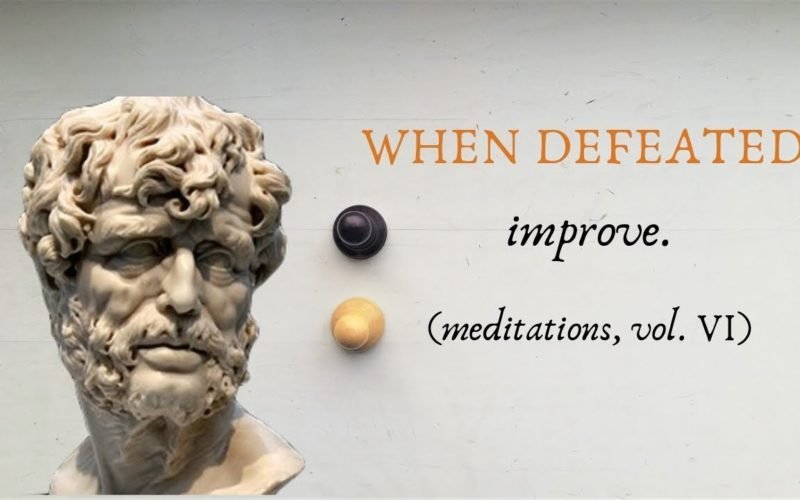Getting up after being knocked down is nowhere as important as it is in chess.
I have tried to explain my thinking when it comes to losing chess games and dealing with the bitterness of defeat.
Ever since I started playing chess, I’ve been very emotional and very serious about it, and, as with other things I do in life, I took losing badly. It would affect me greatly and I would be disoriented after a game. That would be especially true if I stood better and was winning (as was the case in the game I lost today and analyzed in the video).
After the first few tournaments, I started applying my usual coping mechanism I used in everyday life to chess. It’s the Stoic approach, according to which you need only concern yourself with the things which are within your control, and not waste a single moment on those which are not. Applied to chess, this means that there is no use crying over a lost game since you can’t bring back time and play the correct move.
What you can do, however, is learn from your mistakes and make sure you never repeat them. This means that each defeat has to be rigorously analyzed and every single error has to be pointed out and corrected. And all that has to be done without involving emotion! You can’t be angry or sad about something you have no power over. It would change nothing, only reduce your ability to reason and to properly detect and correct your mistakes.
After a defeat, it’s essential that you pick yourself up immediately. During tournaments especially. You can’t afford being mentally distracted going into the next round.
Here is my list of five things you have to do to get the most out of your defeats:
1. Calm down – take emotions out of the equation as soon as possible. They are useless when it comes to analytical thinking.
2. Analyze – set up the pieces and go through the game in detail. Dissect every single move and detect all your errors!
3. Write down your mistakes – now write all your errors down. A small paragraph on each. Conclude why it happened and what you plan to do to make sure you don’t repeat it.
4. Find a victory – find a winning continuation. Replace your mistake with a winning line and give yourself the joy of victory. Do this without the engine!
5. Stop! – This is by far the most important step. Now that you got everything you possibly could from the game and improved on your play, stop thinking about it and move on. This will make you stronger for the battles to come.
6. (if at a tournament) Prepare for tomorrow’s round!
#chess

